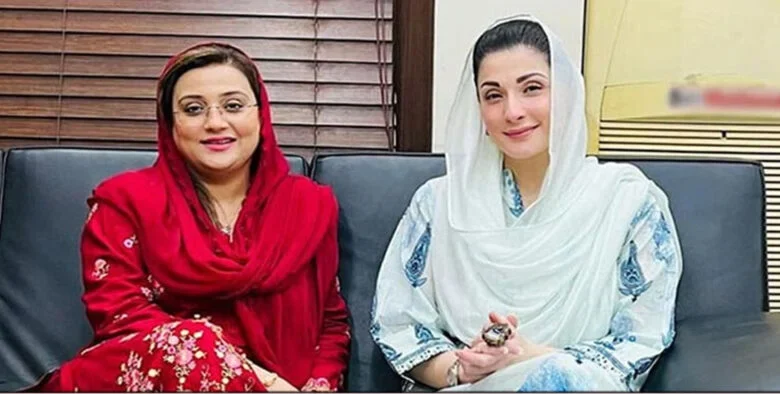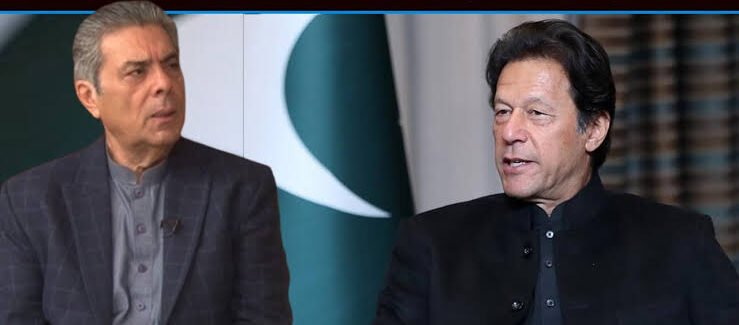
Imran Khan, following a 14-year prison sentence in the £190 million corruption case, has once again launched a scathing attack on the military leadership. In a social media statement, he urged the nation to read the Hamoodur Rahman Commission Report, drawing parallels between the actions of former General Yahya Khan and today’s military rulers, accusing them of pushing the country to the brink of destruction to preserve their authority.
It is worth recalling that just a day before the court’s verdict, Imran spoke to journalists at Adiala Jail, terming the meeting between his party’s chairman Barrister Gohar Khan and Army Chief General Asim Munir a positive development. He suggested that dialogue was the only solution to the country’s challenges. However, after the court’s decision, Imran tweeted that negotiations with the government were futile unless a judicial commission was formed to investigate the incidents of May 9 and November 26. He accused the government of evading the demand for the commission due to its dishonesty.
Propaganda and Reactions
Following the meeting between the Army Chief and Barrister Gohar Khan, PTI’s social media brigade claimed that the military leadership had decided to release Imran Khan under pressure. Security officials, however, strongly refuted this propaganda. After being sentenced in the £190 million corruption case, Imran urged his supporters not to panic.
In his statement on X (formerly Twitter), Imran Khan criticized the judiciary, alleging that the Al-Qadir Trust case decision was pre-determined and leaked to the media. He declared his refusal to accept “dictatorship” and vowed to continue his struggle for true freedom, even if it meant prolonged imprisonment.
Allegations Against the Judiciary
Imran accused the judiciary of undermining its credibility by supporting authoritarianism. He alleged that certain judges were rewarded for following military directives. He also claimed that the £190 million corruption case should have been directed at Nawaz Sharif and his family, accusing them of selling property worth billions in the UK to Malik Riaz. According to Imran, questions about Nawaz Sharif’s unexplained wealth remain unanswered since the Panama Papers scandal.
Imran further alleged that former Chief Justice Qazi Faez Isa facilitated Nawaz Sharif’s financial malpractices, including laundering billions through the Hudaibiya Paper Mills case. However, he failed to substantiate these claims.
Defence of the Al-Qadir Trust
Imran defended the Al-Qadir Trust, comparing it to his philanthropic initiatives, Shaukat Khanum Hospital and Namal University. He asserted that the trust was a free educational institution benefiting students learning about Seerat-un-Nabi (PBUH). Imran denied any personal or financial gain from the trust, claiming that the seizure of its land would harm underprivileged students.
He also defended his wife, Bushra Bibi, describing her as a homemaker with no political involvement. He alleged that her conviction was intended to pressure him, accusing the government of fabricating baseless cases against her. However, critics pointed out her involvement in leading political activities, such as her participation in a protest march to Islamabad.
Court Verdict
On January 17, an accountability court at Adiala Jail, presided over by Judge Nasir Javed Rana, found Imran Khan guilty in the £190 million corruption case. He was sentenced to 14 years in prison, while his wife Bushra Bibi received a 7-year sentence. Both were fined, with Imran liable to pay Rs. 1 million and Bushra Rs. 500,000. Failure to pay would result in an additional 6-month and 3-month imprisonment, respectively.
Allegations Against Malik Riaz
The Al-Qadir Trust case revolves around allegations that Imran Khan and his wife received land and financial benefits worth billions from Bahria Town in exchange for legitimizing £50 billion sent to Pakistan by the UK’s National Crime Agency. Instead of depositing the amount into the national treasury, Imran reportedly used it to settle Bahria Town’s outstanding dues and secured 650 kanals of land in Jhelum for the Al-Qadir Trust University.








